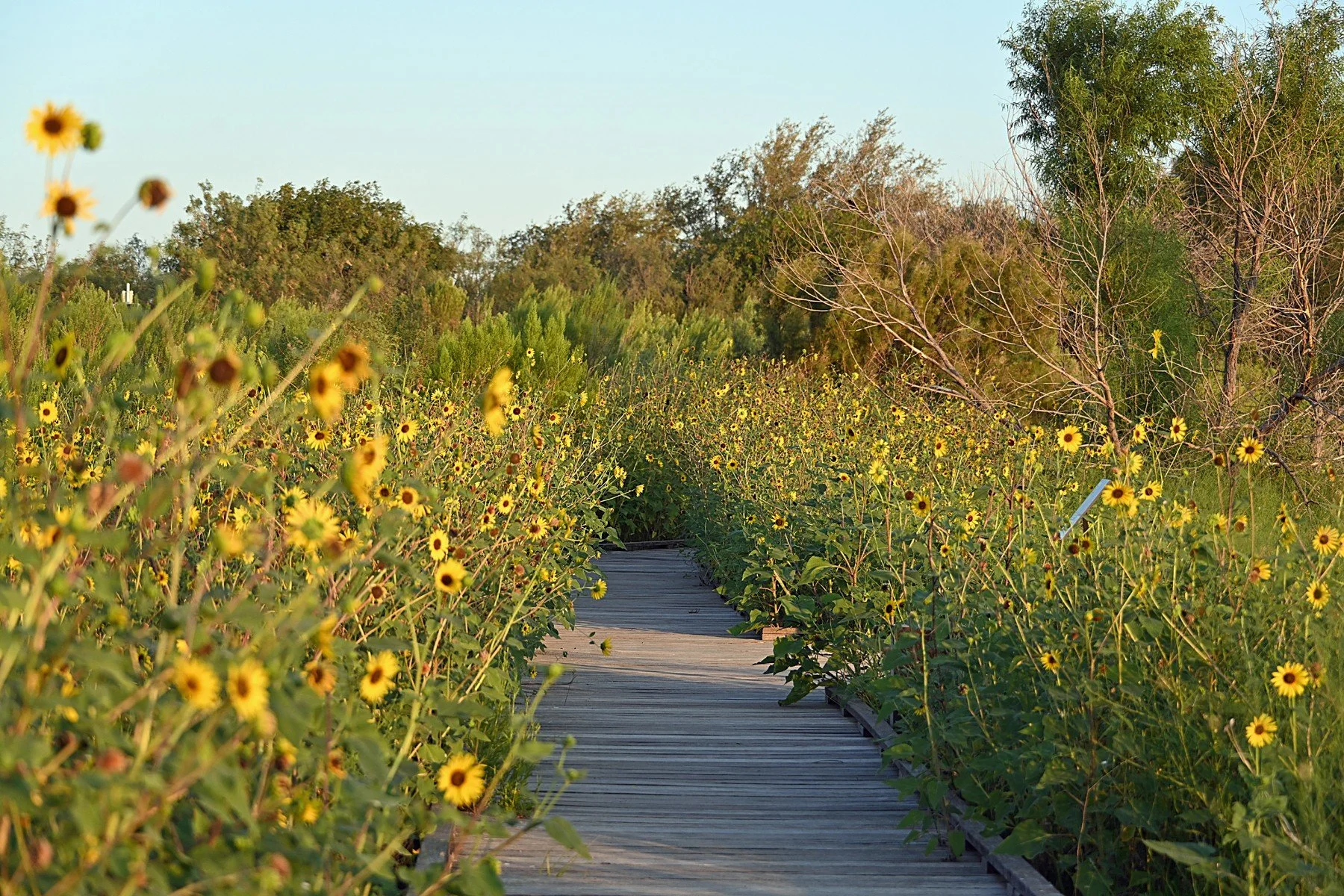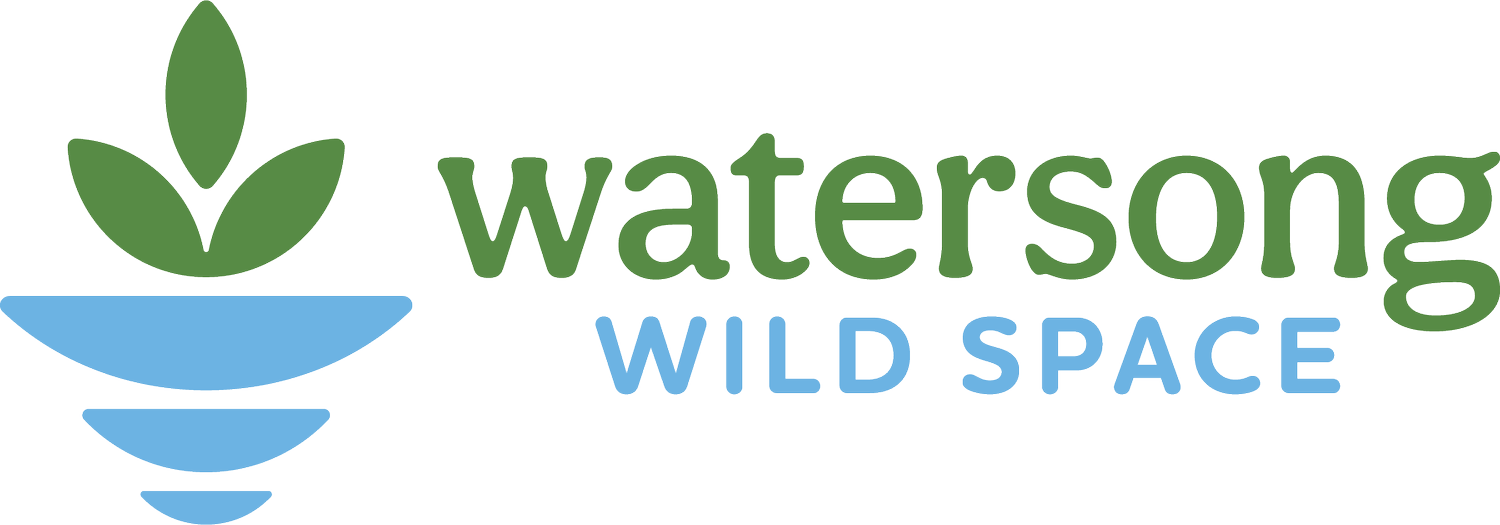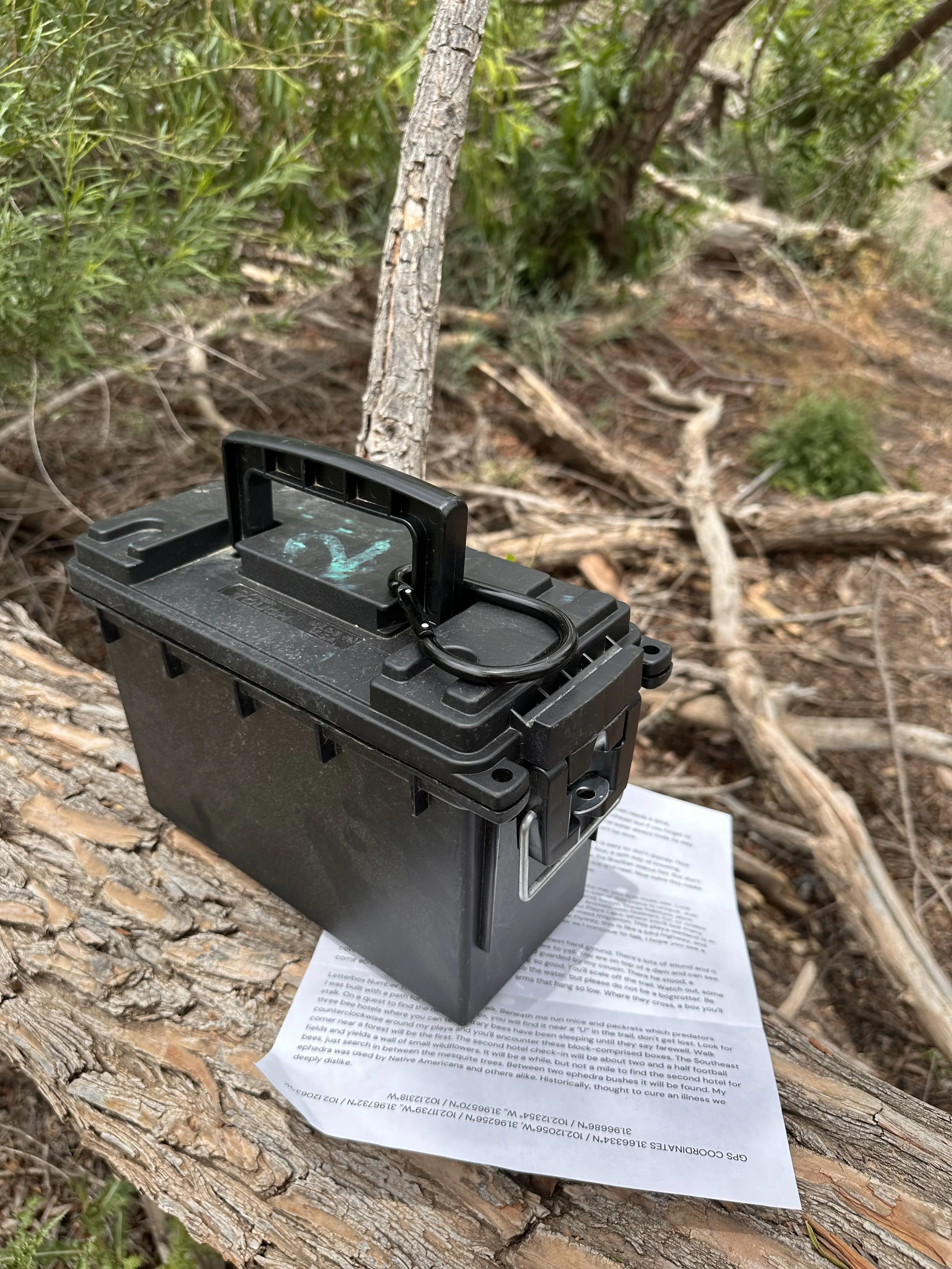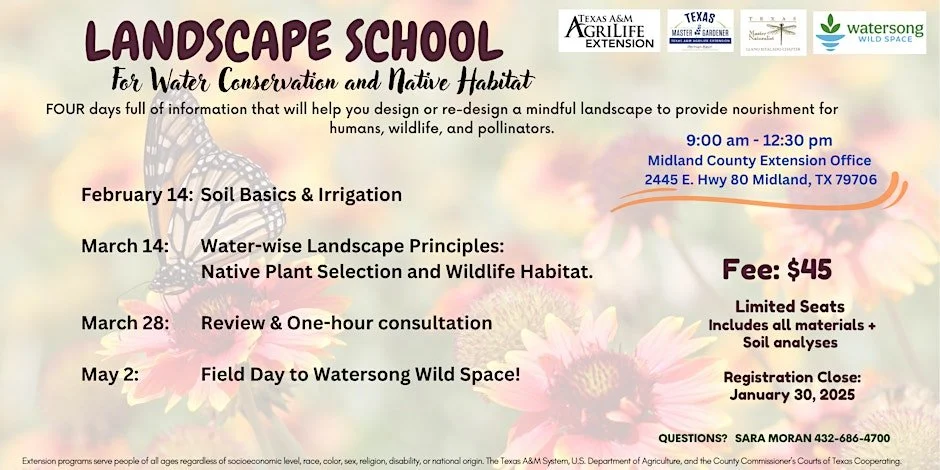
General Public
General Public Education at Watersong
Explore hands-on learning opportunities designed for all ages
At Watersong Wild Space, we believe that education is not just for students—it’s for the entire community. Our public education programs invite you to connect with nature, learn new skills, and become a steward of the environment. Below you can learn about two offerings at Watersong for the public: Letterboxing is self-guided and can be enjoyed anytime, and Landscape School is a course with registration opening in January each year.
Letterboxing at Watersong
Experience our wild space in a whole new way through Letterboxing, a treasure hunt that combines outdoor adventure, puzzle-solving, and creativity. Letterboxing is a great way to encourage kids and adults alike to explore, observe, and connect with nature. Each clue highlights different features of our playa ecosystem, making this a fun and educational adventure for the whole family.
Example letterbox
What is Letterboxing?
Letterboxing is a fun, adventurous game for all ages where participants follow clues to hidden boxes. Each letterbox contains a hand-carved rubber stamp and an educational resource about Watersong’s programs, missions, and history.
Getting Started
To begin your adventure, you will need:
A logbook to record your findings (we suggest an unlined book, size 5” x 8”)
Ink pad & signature stamp (personal stamps can be store-bought or hand-carved, we suggest 1”x1”)
Writing tool for notes and log entries
Compass (this is optional, but could come in handy for certain clues)
Clues accessed through the printable document on this page
How to Letterbox
Follow the clues to locate a letterbox
Stamp your logbook with the rubber stamp inside
Use your signature stamp in the letterbox logbook
Enjoy the educational booklet and return everything to the box before placing it in its original location
Use Leave No Trace principles while looking for a letterbox. You should not have to dig around or trample vegetation to retrieve a letterbox. Keep your wits about you. Don’t walk off a steep incline or step on a snake because you had your nose stuck in a clue. Pay attention to where you’re going so you can retrace your steps if you have to. Most clues will not give directions for returning to the trailhead.
Resources
Printable Document with Watersong Clues & GPS Coordinate Solutions
Check out our YouTube Playlist to expand your conservation knowledge!
Discover nationwide letterboxing opportunities at atlasquest.com
The Landscape School
Learn to landscape with nature in mind
The landscape school is a four-class program that teaches you how to design, plant, and maintain landscapes that support local wildlife and contribute to a healthier ecosystem. The four-class Landscape School is taught in the Spring with Permian Basin Master Gardeners, Llano Estacado Texas Master Naturalists, Watersong Wild Space staff, and Texas A&M AgriLife Extension. Learn to design wildlife-friendly, water-wise landscapes that support pollinators and native Texas ecology.
Find more info at www.westtexasgardening.org.
What is the Landscape School?
If you’re ready to transform your outdoor space into a thriving, ecologically conscious habitat, the Landscape School for Biodiversity & Wildlife Habitat is the perfect place to start. Over four interactive classes, local experts guide you through design, plant selection, water-wise practices, and wildlife-supporting strategies you can apply at home, in community spaces, or at your school.
Course Topics
Native and adaptive plant selection for your site
Pollinator and wildlife habitat design
Water-wise gardening & efficient irrigation strategies
Soil health, composting, and low-impact maintenance
Creating layered habitat: shrubs, grasses, trees, and native beds
Managing invasive species and fostering biodiversity
Seasonal care plans
What You’ll Take Home
A site assessment checklist, including soil testing service
Tour of demonstration beds and plantings
Resource packet with local plant lists
One-on-one consultation with an expert
Certificate of completion and contacts for local Master Gardeners and Master Naturalists
Who Should Attend
Homeowners and gardeners who want wildlife-friendly yards
Community groups, HOAs, and school garden teams
Landscapers and grounds managers seeking practical, local guidance
Anyone interested in creating resilient, pollinator-friendly spaces
The 2026 Landscape School is now live!



